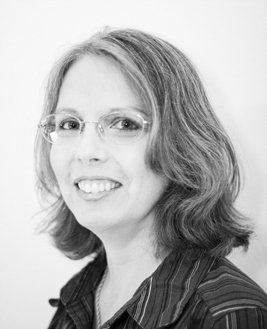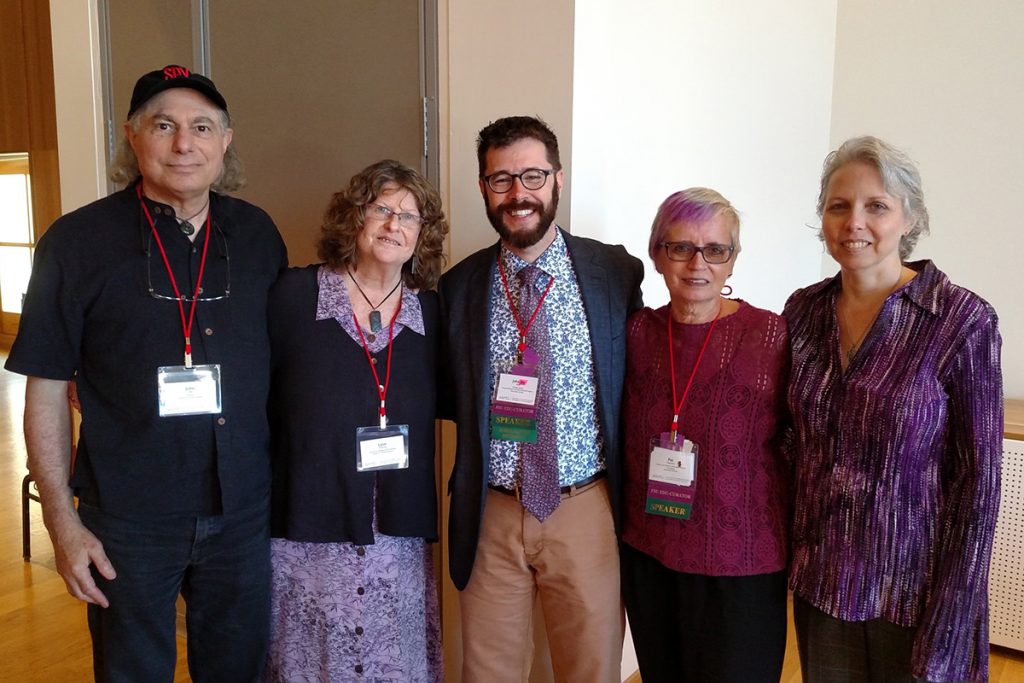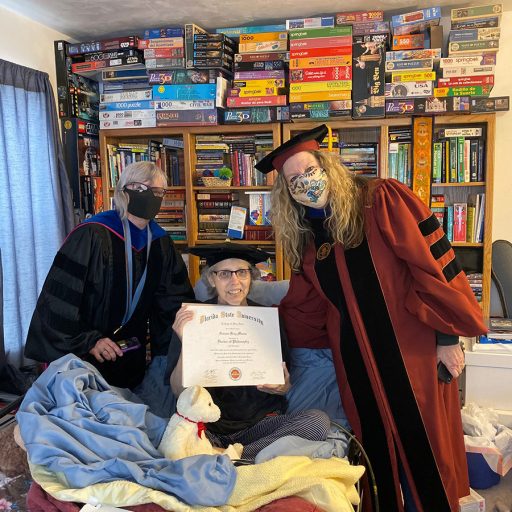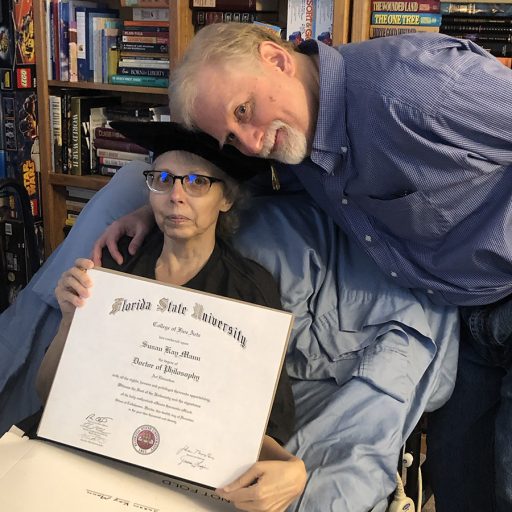A doctoral student suffering from a terminal illness received her degree from Florida State University, recognizing her years of scholarship.
Professors Ann Rowson Love and Pat Villeneuve in the College of Fine Arts Department of Art Education presented Susan Mann with a doctoral degree in Museum Education and Visitor-Centered Exhibitions.

“Susan Mann’s presence in the Department of Art Education resonates in a profound and positive way for fellow students and faculty alike,” said James Frazier, dean of the College of Fine Arts. “The awarding of the doctoral diploma is really a stellar example of our faculty’s care and concern about our students.”
Mann had completed two years of coursework and four years of research and dissertation hours.
“My aunt is one of the most amazing and inspirational women I have known in my life,” said Alyce Greenwood, Mann’s niece. “She is someone who has always put the wants and needs of others above her own. She has always been driven to teach and learn from those around her.”
Greenwood graduated from FSU with her bachelors in Humanities in 2009 on the same day that Mann graduated with her Masters in Arts Administration.
Villeneuve recalled meeting Mann 15 years ago when she came to FSU to pursue a master’s degree in arts administration.
“It was the most impressed I have been with any student who has come in to talk about entering a master’s program,” she said. “She was current in the field’s literature — it was like she was a scholar already.”
Mann applied her theoretical research and study of constructivism to the world of arts administration and then later evolved her theoretical research to the application of museum curation and education.

Professor Jeff Broome, Associate Professor of Art Education, served on Mann’s doctoral committee and also had Mann as a student.
“Susan’s intellectual curiosity, good humor, perseverance [and excellent taste in music] always brightened my day when she was in my Philosophical Structures class,” he said. “It was an honor serving on her doctoral committee.”
Mann’s research concentrated on how an individual’s knowledge is directly related to their own experiences, and how this could be applied to every facet of arts administration and museum education and curation. Mann also examined game theory and its application to museum education and curation, positing that these models could serve to bolster museum attendance, engagement and funding.
Mann published some of her initial findings in her chapter “The application of systems thinking to museum sustainability,” in “Systems thinking in museums: Theory and practice,” published by Rowman & Littlefield.
“When Susan was taking one of my seminars, I really saw that she was clearly doing what I considered genius work,” Villeneuve said.
Mann had several accomplishments in her work outside of FSU, including serving as deputy director for the Mary Brogan Museum in Tallahassee. She has presented to several conferences and seminars, including the Association of Academic Museums and Galleries Annual Conference “Why Museums Matter: The Teaching Museum Today,” and the Social Theory, Politics and the Arts, École Nationale d’Administration Publique (ENAP) where she presented her paper “The Community Engagement Model: Building social capital through the arts.”

“It was such an honor to work with Susan as the chair of her committee,” Rowson Love said. “Throughout her medical treatments over the past three years, she was developing new theory.”
She said that Mann was inspired to return to FSU to pursue her doctoral degree in Museum Education and Visitor-Centered Curation where she found her life’s passion during her coursework and research.
“This work was her inspiration, her joy,” Rowson Love said.






